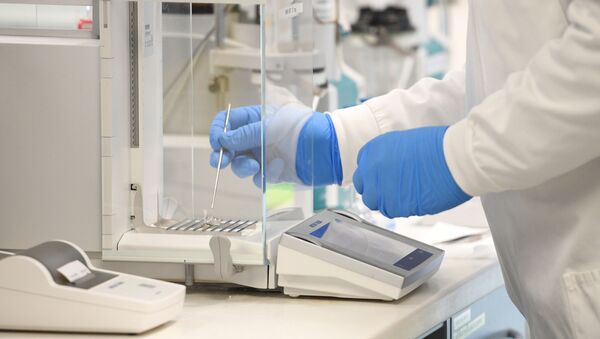According to the company, its COVID-19 vaccine trial was paused in July after a volunteer was found to have multiple sclerosis, a disease that causes damage to the central nervous system. However, the diagnosis was found to be unrelated to the vaccine.
"Reports claiming to be based on comments made earlier today by our CEO stating that we have confirmed that a participant in our clinical trial suffered from transverse myelitis are incorrect," notes a statement released by AstraZeneca Wednesday.
"He stated that there is no final diagnosis and that there will not be one until more tests are carried out. Those tests will be delivered to an independent safety committee that will review the event and establish a final diagnosis. We can also confirm that there was a brief trial pause in July while a safety review took place after one volunteer was confirmed to have an undiagnosed case of multiple sclerosis, which the independent panel concluded was unrelated to the vaccine," the statement adds.
Earlier Wednesday, multiple outlets erroneously reported that the shutdown of AstraZeneca's Phase 3 trial occurred after a woman in the United Kingdom experienced neurological symptoms related to transverse myelitis. News reports falsely quoted Pascal Soriot, the drug-maker's chief executive, in relation to the matter.
AstraZeneca's vaccine, known as AZD1222, uses an adenovirus that carries a gene for one of the proteins in SARS-CoV-2, the virus that causes COVID-19. While Phase 2/3 trials were previously started in Brazil, South Africa and the UK, the drug-maker launched its Phase 3 trial in the US in late August. The vaccine is being administered to up to 30,000 adults aged 18 years or over across the country.
"Participants are being randomized to receive two doses of either the potential vaccine or a saline control, four weeks apart, with twice as many participants receiving the potential vaccine than the saline control. The trial is assessing efficacy and safety of the potential vaccine in all participants, and local and systemic reactions and immune responses will be assessed in 3,000 participants," AstraZeneca wrote in a September 3 news release.

